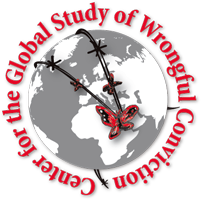From IOLnews.com:
Cape Town -South Africans who have been convicted of crimes they didn’t commit may now be able to prove their innocence through a new project which relies on DNA testing.
In the US the Innocence Project has already helped scores of people, including some on death row, to be exonerated through the help of DNA technology. Now the Innocence Project South Africa will strive to do the same.
“It is far more important to release somebody from jail who isn’t guilty than to be putting people behind bars who are guilty,” said Professor Sean Davison, head of the forensic DNA laboratory at UWC.
“It’s a shocking crime against humanity to keep someone in jail who shouldn’t be.”
Davison is the co-founder of this project with Dr Andra le Roux, a lawyer based at Stellenbosch University.
He said that to date more than 300 people in the US had been exonerated through DNA technology. In more than half of the cases, the true perpetrator was identified.
“There have been so many cases of absolute innocence. By logic we deduced that there would be similar cases in South Africa. In fact, there will probably be more because South Africa doesn’t have a jury system.”
The project would look at cases where DNA had not been tested or where the DNA technology used at the time was inferior to current technology.
“The lab at UWC specialises in looking at highly degraded DNA, which could well be the case for DNA which has been stored for up to 15 years and may have been exposed to environmental damage before then.”
The project recently registered with the Innocence Network, the international umbrella body, and has already started getting applications from prisoners.
Davison said applications would be reviewed by a committee. Should they pass the initial screening, they would be asked to fill out a questionnaire providing further details.
“There then needs to be a search for biological evidence. We will need to obtain the detailed case docket and all the evidence related to the crime will have to be investigated.”
The team would have to work closely with the police, with whom meetings had already been held.
Flyers would be distributed in prisons to make inmates aware of the project.
Davison said that in the US the exonerations had exposed weaknesses in the criminal justice system such as false witness testimony, false confessions, and erroneous forensic science. But cases where biological evidence had been used to exonerate people were just the tip of the iceberg – many other innocent people would remain in jail because there was no biological evidence.
The project would rely on donor funding and prisoners would be helped on a pro bono basis.
Davison’s colleague, Professor Eugenia D’ Amato, said a prototype rape kit, developed by the UWC forensic DNA laboratory, was expected to be made available next year and would help to determine how many people were involved in cases in which a victim had been raped multiple times, and would help to exonerate the innocent.

















